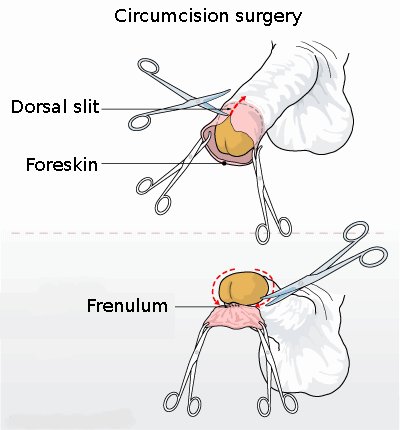Circumcision is a surgical procedure in which the foreskin of the penis is removed, often for religious, cultural, or medical reasons. It is commonly performed on newborns, but can also be done later in life for medical conditions like recurrent infections or phimosis. The procedure is usually done under local anesthesia for adults and general anesthesia for infants. Benefits of circumcision include a lower risk of urinary tract infections, reduced risk of some sexually transmitted infections, and easier hygiene. While generally safe, circumcision carries some risks, such as infection, bleeding, and in rare cases, complications with the healing process.
What is Circumcision Treatment
- Circumcision is a surgical procedure that removes the foreskin from the penis.
- It is typically done for religious, cultural, or medical reasons, such as preventing infections.
- The procedure is usually performed under local or general anesthesia, depending on age.
- It offers benefits like reduced risk of urinary tract infections and easier genital hygiene.
- Although generally safe, circumcision carries risks like bleeding, infection, or complications during recovery.
Benefits of Circumcision
- Reduces the risk of urinary tract infections (UTIs), especially in infants, by promoting better hygiene. This can help prevent recurrent infections and related complications
- Lowers the risk of certain sexually transmitted infections (STIs), including HIV, by reducing areas where pathogens can accumulate. It also decreases the risk of penile cancer and some other genital conditions.
- Improves genital hygiene by making it easier to clean the penis, preventing the buildup of bacteria or smegma. This can lead to fewer infections and overall better genital health.
- Prevents phimosis, a condition where the foreskin cannot be retracted, which can cause pain and urinary problems. Circumcision offers long-term relief from such conditions without the need for further medical treatment.
Frequently Asked Questions
What is circumcision?
Circumcision is a surgical procedure in which the foreskin of the penis is removed, often for religious, cultural, or medical reasons.
What are the benefits of circumcision?
Benefits include a reduced risk of urinary tract infections, lower chances of certain sexually transmitted infections, improved hygiene, and prevention of conditions like phimosis.
Is circumcision safe?
Circumcision is generally safe when performed by a qualified healthcare provider, but like any surgery, it carries risks such as infection, bleeding, or complications with healing.
How long does it take to recover from circumcision?
Recovery typically takes about 1-2 weeks for adults, with most children recovering in a few days. It is important to follow post-surgery care instructions to avoid complications.
Can circumcision be done later in life?
Yes, circumcision can be performed at any age, though it is generally easier and has fewer risks when done during infancy or early childhood.

